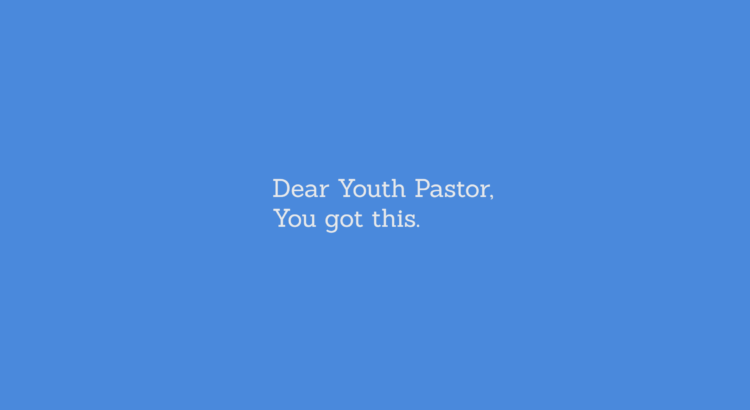I can’t remember now how many weeks we are into the Coronavirus pandemic, into the stay-at-home orders, into the new era of working from home, doing church online, and “gathering” via video conference.
If I remember right, when we first got started, we focused on keeping things as normal as possible. You planned and delivered youth group games and student worship services over Facebook, YouTube and Zoom that looked very much like the ones you would have led in your youth room at the church. But as this thing has dragged out, you’re probably feeling like I am that it’s time to pivot again.
I’m ready to be back doing in-person ministry. I’m ready to feel like I’m actually accomplishing something every day. And I’m starting to see how this thing is going to have long-term impacts on the mental health of people… especially young people.
Earlier this week, Pine Rest Christian Mental Health Services published a paper outlining the potential mental health impacts of our current situation. “The factors that research has shown to predict mental health impairment and death [due to suicide], have all recently spiked…” they wrote. Among other things, these risk factors include:
- Economic Distress – While the unemployment rate has been on the decline from 10% in 2010 to below 4% earlier this year, many areas have seen a spike, with average actual unemployment in the U.S. now at a staggering 20.6%.
- Isolation – Clearly, social distancing and stay-at-home orders have increased isolation. The Pine Rest report points to research which has shown a five-fold reduction in the risk of suicide for those who attend (in person) weekly religious services – not an option currently for most.
- Lack of Community Gatekeepers – The report points to primary care physicians as being a primary first intervention for those with mental health needs, often identifying and referring those in need of additional support. It’s a role youth pastors and teachers have often filled too.
I think there are a couple significant takeaways for youth ministry.
First, the kids and youth you serve are in distress. Let’s just be honest. Isolated, facing so much uncertainty, and without face-to-face contacts with teachers and pastors (like you), they are at higher risk for all sorts of increased negative behaviors and responses, as well as at higher risk of abuse, neglect, substance abuse… the list goes on.
And second, what your students really need is you. Especially right now, they need to connect with you more than they need fancy graphics or innovative games. I’ve noticed that the sentiment among youth pastors in the past week or so has started to reflect the sense that many students are already losing interest in the large-group, online versions of youth group they’ve been working so hard to produce. But this unique time is the perfect excuse to let go of how-we-always-did-it programming and focus on building and strengthening relationships with students.
The truth is, just like you don’t have to be a great musician, graphic designer or producer to do great ministry, you also don’t have to be a therapist to provide the primary support your students need.
Start by connecting individually – well, at least in a very small group. Our camp staff, as an example, have been scheduling two adults to meet with one camper at a time via Zoom, where they can use the record feature to document the visit for added protection and accountability. Schedule 10- or 15-minute conversations on a regular basis, where you can act as one of those “community gatekeepers,” seeing into the world of your students, and having the opportunity for meaningful personal conversation about what really matters to them, what they really need, and how they’re really feeling – and where they don’t feel like they have to perform on-screen for their peers.
Focus on being encouraging. You’re great at it… even better at it than at producing streaming worship services. Find ways to provide affirmation on a regular basis – looking for specific things that reflect the kind of character you long to see developed in your students. These things come out of you naturally when you’re together at the church playing silly games, so, since you’re doing ministry remotely, you may have to work harder at it than normal. So, be intentional about it. Make a list of all your students; brainstorm specific affirmations; deliver them personally via phone call or some other form of electronic message; repeat.
On a side note, the Pine Rest report points out that certain populations, especially of youth, are particularly more vulnerable to the negative impacts of these trying times. Students who struggle with gender and sexual identity or who identify as LGBTQ, for example, may not have access to supportive adults and peers – which can be particularly difficult, especially when their quarantined home life is perceived to be antagonistic or unsupportive. These students are in particular need of your regular check-ins, encouragement, and affirmation. (If you’re not sure how to do that in a way consistent with your theological position, check out my writing on the topic here.)
And finally, leverage the flexibility of your adult leaders to serve as mentors, pastors and shepherds for students. While it’s tempting to stream alone form your basement, give them meaningful roles, opportunities to share what they’re learning and how they’re growing, and ways to connect safely with your students for deeper sharing and study. Let these relationships grow organically, and don’t be offended if one of your students connects better with an adult leader than with you.
Your church hired you, not because you are great at technology, great at social media, or great at programming DMX lighting. They hired you because you are great at loving students. And, while there’s tons of bad news in our world today… the good news is, the very thing that you’re best at, is what your students need most. You got this.
